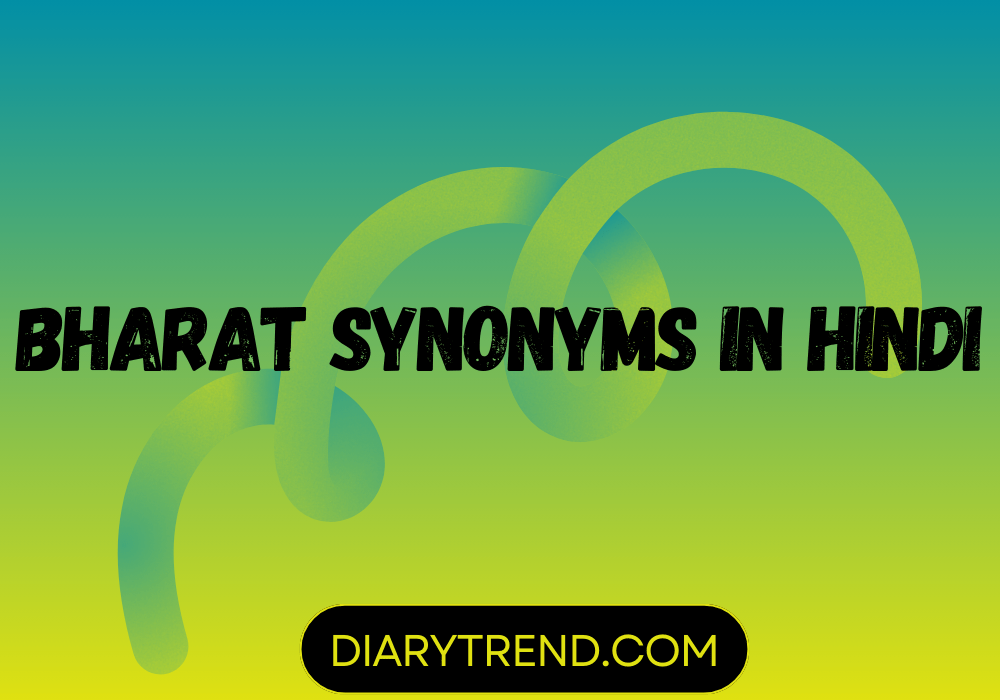India, a land of diverse cultures, languages, and histories, is known by several names, each carrying its unique significance and story. In Hindi, one of the most popular names for India is “Bharat,” but there are several other synonyms and terms that reflect the country’s rich heritage and ancient roots. Let’s delve into these names and uncover the layers of history and culture they represent.
1. हिंदुस्तान (Hindustan)
“Hindustan” is a term that is often used interchangeably with Bharat, particularly in a modern context. Historically, the term has Persian roots, where “Hindu” refers to the land beyond the Indus River, and “stan” means a place. This term gained widespread usage during the Mughal era and later during British rule. Today, Hindustan embodies a broader cultural and geographic connotation, encompassing the entire Indian subcontinent.
2. इंडिया (India)
“India” is the English rendition of the name, derived from the River Indus, which was the cradle of the Indus Valley Civilization, one of the world’s oldest urban cultures. The term “India” itself is borrowed into Hindi and is widely recognized and used, particularly in a global context. It reflects the country’s journey from its ancient roots to its current status on the world stage.
3. आर्यावर्त (Aryavarta)
“Aryavarta,” meaning the land of the Aryans, is a term found in ancient Indian texts, including the Vedas. This term specifically refers to the northern part of India, where the Indo-Aryan culture was predominant. Aryavarta holds a significant place in the historical and cultural understanding of ancient Indian civilization, highlighting the region’s deep-seated historical narratives.
4. जम्बूद्वीप (Jambudweep)
“Jambudweep” is a traditional name found in ancient Indian scriptures, referring to the Indian subcontinent. This term is derived from the mythical Jambu tree, believed to be located at the center of the world in Hindu, Jain, and Buddhist cosmologies. Jambudweep is not just a geographical term but a symbolic representation of the cultural and spiritual beliefs of the Indian civilization.
5. सप्तसिन्धु (Saptasindhu)
“Saptasindhu,” translating to the land of the seven rivers, primarily refers to the Indus Valley and its tributaries. This term is deeply linked to the Indus Valley Civilization, one of the world’s oldest urban cultures. Saptasindhu is significant in understanding the early stages of urbanization and societal development in Indian history. It’s a reminder of the ancient civilization that flourished in this region, laying foundations for future developments in the subcontinent.
Each of these names – Hindustan, India, Aryavarta, Jambudweep, and Saptasindhu – offers a glimpse into India’s multifaceted identity. These terms are not mere synonyms of “Bharat” but are imbued with historical, cultural, and geographical nuances that collectively narrate the story of a civilization that has evolved over thousands of years.
Cultural and Historical Impact
These diverse names reflect the layers of India’s history. From the ancient times of Aryavarta and Jambudweep, through the medieval era signified by Hindustan, to the contemporary period of India, each name has witnessed different epochs and has been part of various narratives, both indigenous and foreign.
The evolution of these names also mirrors the dynamic and ever-changing nature of Indian culture and society. They encapsulate the invasions, migrations, cultural exchanges, and the synthesis of various philosophies and ways of life that have occurred over millennia.
Conclusion
In conclusion, the synonyms of “Bharat” in Hindi are not just words but are powerful symbols that encapsulate the essence of India’s rich and diverse heritage. They remind us of the country’s journey through time, its ancient roots, its complex history, and its emergence as a nation with a unique identity in the global arena. Understanding these terms is not just about knowing different names for a country; it’s about appreciating the deep-seated cultural and historical narratives that have shaped one of the world’s oldest and most vibrant civilizations.
